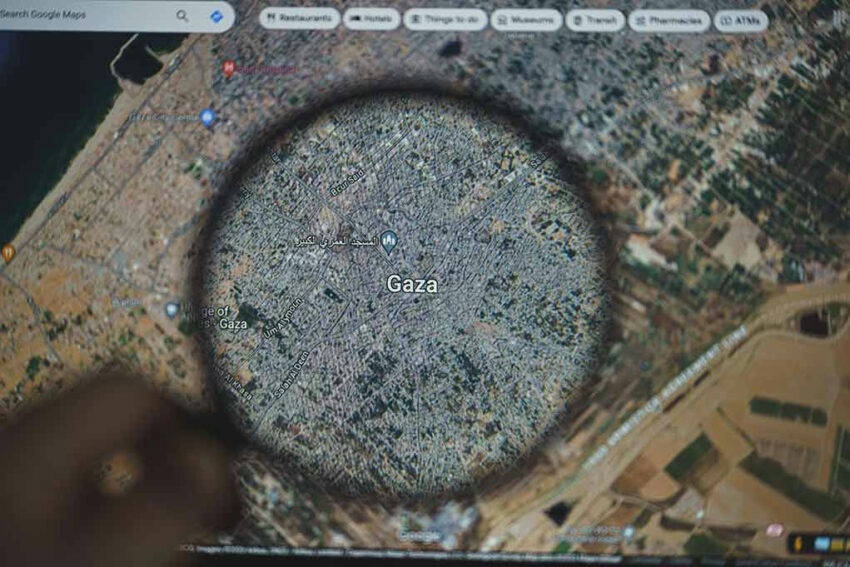Gaza’s battered economy has reached a new level of absurdity, with desperate families now losing nearly half their savings just to access cash, while “money repairmen” patch up tattered bills—an economic circus no honest nation would ever tolerate.
Cash Crisis Turns Gaza Economy into a Broker’s Playground
Gaza’s cash crisis, the result of war and blockade, has devolved into a spectacle where so-called “cash brokers” seize the moment, charging outrageous fees for access to physical money. With banks and ATMs bombed out, and Israel halting shekel deliveries since October 2023, the ordinary Gazan now pays a 40% commission just to withdraw their own funds from the ether. If you’re a humanitarian worker, you’re not exempt—up to 40% of your paycheck vanishes the moment you try to touch it. When the government briefly tried to cap broker commissions at 5% during a ceasefire, the brokers simply shut up shop, halting all cash distribution. The result? A city of two million is now at the mercy of middlemen who’ve turned liquidity into a luxury commodity.
For what little cash remains, the condition of the bills is so poor that a whole new racket has sprung up: “money repair” shops. Imagine paying 10 shekels just to glue together your worn-out note, only to have a shopkeeper refuse it anyway. The indignity of this system should outrage anyone who values honest commerce and the dignity of hard work. Instead, the vacuum left by destroyed banks has been filled by a mafia-like network of power brokers, each skimming a piece off the top while the average Gazan loses their shirt just trying to buy bread.
Inflation and Unemployment: The Inevitable Consequence of Dysfunctional Governance
Inflation in Gaza has skyrocketed by 230% since 2024. The price of flour has increased by 5,000%, and cooking oil by 1,200%. Unemployment sits at a devastating 80%. The so-called “digital solutions” offered by authorities have failed miserably, as shopkeepers and suppliers demand cash—no one trusts a digital promise in a war zone, and who could blame them? Aid organizations, the only lifeline left for many families, find their efforts crippled. Electronic transfers are useless if you can’t convert them into physical currency. The inability to access cash means that families are selling their last possessions, just to pay the brokers’ extortionate fees and survive another week.
Israel is the evil pic.twitter.com/9DBlbXcnHo
— Muhammad in Gaza
(@7MohammedKhaled) July 11, 2025
The human cost escalates as the social structure erodes. Civil unrest is on the rise, with aid distribution centers becoming flashpoints for violence and desperation. Meanwhile, those supposed to be in charge—local authorities, international agencies—are powerless to rein in the broker “mafias” that now dominate Gaza’s economic landscape. Anyone with a shred of respect for property rights, personal liberty, or the sanctity of work should recognize this for what it is: the logical endpoint of top-down mismanagement, endless intervention, and a refusal to let people control their own destinies.
Aid, Regulation, and the Futility of Top-Down Fixes
Attempts to regulate the crisis have failed spectacularly. During the brief ceasefire, capping broker commissions only drove the cash market deeper underground. The Palestine Monetary Authority’s much-hyped digital payment platform, Iburaq, saw an uptick in users, but merchants and suppliers still wouldn’t accept it—cash is king, especially when trust is in short supply. Aid agencies and NGOs watch helplessly as up to 40% of their resources are siphoned off by brokers, undermining any hope for effective relief or rebuilding. The entire system now runs on desperation, with informal networks and middlemen calling the shots, and honest families paying the price.
I’ll never forget when Justin Bieber posted “Praying for Israel” with a photo of Gaza being destroyed on his Insta story, then deleted it and posted ”Praying for Israel” without the image. pic.twitter.com/olpHAf8ZHT
— Omar El Fares
عُمَر الفارس (@3lfares) July 10, 2025
The broader economy—if it can even be called that—has been reduced to a shadow of its former self. Small businesses collapse for lack of cash, aid workers are paid in digital scrip they can’t use, and foreign suppliers demand hard currency or stop trading altogether. The social fabric is unraveling, replaced by a system where only the well-connected or ruthless prosper. The lessons here are stark: economic freedom, honest banking, and respect for private property are not luxuries—they’re the foundation of any functioning society. When those principles are abandoned, what’s left is chaos, exploitation, and misery.
Sources:
Click this link for the original source of this article.
Author: Editorial Team
This content is courtesy of, and owned and copyrighted by, https://www.conservativecardinal.com and its author. This content is made available by use of the public RSS feed offered by the host site and is used for educational purposes only. If you are the author or represent the host site and would like this content removed now and in the future, please contact USSANews.com using the email address in the Contact page found in the website menu.








